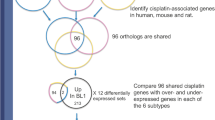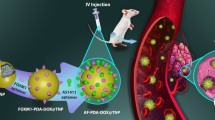Abstract
Contrasting agents (CAs) that are administered to patients during magnetic resonance imaging to facilitate tumor identification are generally considered harmless. However, gadolinium (Gd) based contrast agents can be retained in the body, inflicting specific cell line cytotoxicity. We investigate the effect of Gadopentatic acid (Gd-DTPA) on human breast adenocarcinoma MCF-7 cells. These cells exhibit a toggle switch response: exposure to 0.1 and 1 mM concentrations of Gd-DTPA enhances proliferation, which is hindered at a higher 10 mM concentration. Proliferation is enhanced when cells transition to 3D morphologies in post confluent conditions. The proliferation dependence on the concentration of CA is absent for Hs 578T and MDA-MB-231 triple negative cell lines. MCF-7 cells reveal a double toggle switch related to the expression of VEGF, which goes through high–low–high downregulation when cells are exposed to 0.1, 1, and 10 mM Gd-DTPA, respectively. Finally, doxorubicin drug response is assessed, which also reveals a double toggle switch behavior, where drug cytotoxicity exhibits a nonlinear dependence on the CA concentration. A toggle switch in cell characteristics that are exposed to 1 mM of Gd-DTPA amplifies the importance of this threshold, affecting several cell behaviors if surpassed. This work emphasizes the important effects that CAs can have on cells, specifically Gd-DTPA on MCF-7 cells, and the implications for cell growth and drug response during clinical and synthetic biology procedures.






Similar content being viewed by others
References
Abdel Fattah AR, Ghosh S, Puri IK (2016a) High gradient magnetic field microstructures for magnetophoretic cell separation. J Chromatogr B 1027:194–199. https://doi.org/10.1016/j.jchromb.2016.05.046
Abdel Fattah AR, Meleca E, Mishriki S, Lelic A, Geng F, Sahu RP, Puri IK (2016b) In situ 3D label-free contactless bioprinting of cells through diamagnetophoresis. ACS Biomater Sci Eng 2(12):2133–2138. https://doi.org/10.1021/acsbiomaterials.6b00614
Abdel Fattah AR, Mishriki S, Kammann T, Sahu RP, Geng F, Puri IK (2018) 3D cellular structures and co-cultures formed through contactless magnetic manipulation of cells on adherent surfaces. Biomater Sci. https://doi.org/10.1039/c7bm01050h
Aime S, Caravan P (2009) Biodistribution of gadolinium-based contrast agents, including gadolinium deposition. J Magn Reson Imaging 30(6):1259–1267. https://doi.org/10.1002/jmri.21969
Akiyama Y, Morishima K (2011) Label-free cell aggregate formation based on the magneto-Archimedes effect. Appl Phys Lett 98(16):163702. https://doi.org/10.1063/1.3581883
Berryy MV, Geimz AK (1997) Of flying frogs and levitrons. Eur J Phys 18:307–313
Carr DH, Brown J, Bydder GM, Steiner RE, Weinmann H-J, Speck U, Young IR (1984) Gadolinium-DTPA as a contrast agent in MRI: initial clinical experience in 20 patients. Am J Roentgenol 143:215–224
Edward M, Quinn JA, Burden AD, Newton BB, Jardine AG (2010) Effect of different classes of gadolinium-based contrast agents on control and nephrogenic systemic fibrosis–derived fibroblast proliferation. Radiology 256(3):735–743. https://doi.org/10.1148/radiol.10091131/-/DC1
Frenzel T, Lengsfeld P, Schirmer H, Hu J, Weinmann H-J (2008) Stability of gadolinium-based magnetic resonance imaging contrast agents in human serum at 37°C. Invest Radiol 43:817–828
Gierthy JF, Lincoln DW (1988) Inhibition of postconfluent focus production in cultures of MCF-7 human breast cancer cells by 2,3,7,8-tetrachlorodibenzo-p-dioxin. Breast Cancer Res Treat 12:233–277
Gupta SC, Kim JH, Prasad S, Aggarwal BB (2010) Regulation of survival, proliferation, invasion, angiogenesis, and metastasis of tumor cells through modulation of inflammatory pathways by nutraceuticals. Cancer Metastasis Rev 29(3):405–434. https://doi.org/10.1007/s10555-010-9235-2
Han Ki-Ho, Frazier AB (2005) Diamagnetic capture mode magnetophoretic microseparator for blood cells. J Microelectromech Syst 14(6):1422–1432
Kauffmann P, Ith A, O’Brien D, Gaude V, Boue F, Combe S, Reyne G (2011) Diamagnetically trapped arrays of living cells above micromagnets. Lab Chip 11(18):3153–3161. https://doi.org/10.1039/c1lc20232d
Midura S, Schneider E, Sakamoto FA, Rosen GM, Winalski CS, Midura RJ (2014) In vitro toxicity in long-term cell culture of MR contrast agents targeted to cartilage evaluation. Osteoarth Cartil 22(9):1337–1345. https://doi.org/10.1016/j.joca.2014.07.010
Morgunov RB, Mushenok FB, Aldoshin SM, Sanina NA, Yur’eva EA, Shilov GV, Tkachev VV (2009) Thermally-induced paramagnetism of spiropyrane iodides. New J Chem 33(6):1374. https://doi.org/10.1039/b822567b
Pais A, Biton IE, Margalit R, Degani H (2013) Characterization of estrogen-receptor-targeted contrast agents in solution, breast cancer cells, and tumors in vivo. Magn Reson Med 70(1):193–206. https://doi.org/10.1002/mrm.24442
Paul F, Roath S (1975) Direct magnetic separation of red cells from whole blood. Nature 255:706
Perrot-Applanat M, Di Benedetto M (2012) Autocrine functions of VEGF in breast tumor cells: adhesion, survival, migration and invasion. Cell Adhes Migr 6(6):547–553. https://doi.org/10.4161/cam.23332
Ramalho J, Semelka RC, Ramalho M, Nunes RH, AlObaidy M, Castillo M (2016) Gadolinium-based contrast agent accumulation and toxicity: an update. AJNR Am J Neuroradiol 37(7):1192–1198. https://doi.org/10.3174/ajnr.A4615
Rohrig F, Vorlova S, Hoffmann H, Wartenberg M, Escorcia FE, Keller S, Henke E (2017) VEGF-ablation therapy reduces drug delivery and therapeutic response in ECM-dense tumors. Oncogene 36(1):1–12. https://doi.org/10.1038/onc.2016.182
Shellock FG, Kanal E (1999) Safety of magnetic resonance imaging contrast agents. J Magn Reson Imaging 10:477–484
Winkleman A, Gudiksen KL, Ryan D, Whitesides GM, Greenfield D, Prentiss M (2004) A magnetic trap for living cells suspended in a paramagnetic buffer. Appl Phys Lett 85(12):2411. https://doi.org/10.1063/1.1794372
Zaplatin AN, Baker KA, Kleinhans FW (1996) Effectivness and toxcicity of several DTPA broadening agents for biological ESR spectroscopy. J Magn Reson Ser B 110:249–254
Zhang Y, Fu LJ, Li JX, Yang XG, Yang XD, Wang K (2009) Gadolinium promoted proliferation and enhanced survival in human cervical carcinoma cells. Biometals 22(3):511–519. https://doi.org/10.1007/s10534-009-9208-5
Zhou Z, Lu ZR (2013) Gadolinium-based contrast agents for magnetic resonance cancer imaging. Wiley Interdiscip Rev Nanomed Nanobiotechnol 5(1):1–18. https://doi.org/10.1002/wnan.1198
Acknowledgements
This work is supported by a Natural Sciences and Engineering Research Council of Canada (Grant RGPIN-2014-04066) Discovery Grant (NSERC-DG), Canada Foundation for Innovation John R. Evans Leaders Fund (CFI-JELF), Ontario Research Fund Research Infrastructure (ORF-RI) grants (Grant No. 33016), the Mitacs Globalink Program and the German Academic Exchange Service (DAAD). The authors thank Dr. Juliet Daniel from Department of Biology at McMaster University for donating Hs 578T and MDA-MB-231 cells.
Author information
Authors and Affiliations
Contributions
AA and SM contributed equally to this work. The manuscript was written through contributions of all authors. All authors have given approval to the final version of the manuscript.
Corresponding author
Ethics declarations
Conflict of interest
The authors declare no conflict of interest.
Electronic supplementary material
Below is the link to the electronic supplementary material.
Rights and permissions
About this article
Cite this article
Abdel Fattah, A.R., Mishriki, S., Kammann, T. et al. Gadopentatic acid affects in vitro proliferation and doxorubicin response in human breast adenocarcinoma cells. Biometals 31, 605–616 (2018). https://doi.org/10.1007/s10534-018-0109-3
Received:
Accepted:
Published:
Issue Date:
DOI: https://doi.org/10.1007/s10534-018-0109-3




